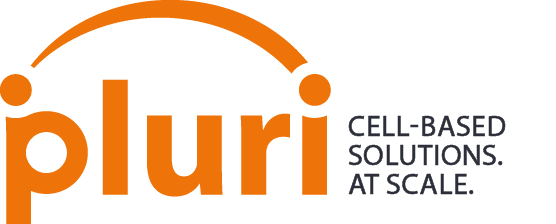- Patent covers PLX-R18’s protection of the gastrointestinal (GI) tract from radiation
exposure
- Recent data from Fukushima University shows PLX-R18 cells significantly increased survival and enhanced the recovery of the GI tract after radiation exposure
HAIFA, Israel, July 26, 2018 – Pluristem Therapeutics Inc. (Nasdaq:PSTI) (TASE:PSTI), a leading developer of placenta-based cell therapy products, announced today that the Japan Patent Office has granted Pluristem a patent for the treatment of Acute Radiation Syndrome (ARS) and its impact on the gastrointestinal tract. The patent titled “Methods for Treating Radiation or Chemical Injury” relates to intramuscular (IM) administration of adherent stromal cells, cultured under three-dimensional culturing conditions, for mitigating intestinal damage in patients that have been exposed to radiation or chemotherapy.
“The patent is a particularly meaningful asset for our Company in Japan, due to recently published findings from pre-clinical studies conducted at Fukushima Medical University, showing that following radiation exposure PLX-R18 cells significantly increase survival rates, preserve GI stem cell activity, enhance the recovery of the GI system and prevent severe damage to the intestinal lining,” stated Pluristem Chairman and Co-CEO Zami Aberman.
“We believe PLX-R18 is the optimal therapy available today for acute radiation injury. ARS includes injury to multiple organs, with its lethality stemming from radiation-induced damage mainly to the bone marrow and GI tract. The Fukushima University studies demonstrate PLX-R18’s potential ability to treat multiple organs affected by ARS,” Aberman added.
Pluristem’s PLX-R18 cells are in late-stage development as a treatment for ARS in a program conducted and funded by the U.S. National Institutes of Health (NIH) and are also being studied by the U.S. Department of Defense (DOD) and Fukushima University. A PLX-R18 investigational new drug (IND) application for ARS was recently cleared by the U.S. Food and Drug Administration (FDA), allowing Pluristem to treat victims who may have been acutely exposed to high dose radiation due to nuclear attack or accident. Pluristem’s PLX-R18 ARS program has also received an orphan drug designation by the FDA.
About Pluristem Therapeutics
Pluristem Therapeutics Inc. is a leading developer of placenta-based cell therapy products.
The Company has reported robust clinical trial data in multiple indications for its patented PLX cells and is entering late- stage trials in several indications.
PLX cell products release a range of therapeutic proteins in response to inflammation, ischemia, muscle trauma, hematological disorders, and radiation damage. ֿ
The cells are grown using the Company’s proprietary three-dimensional expansion technology and can be administered to patients off-the-shelf, without tissue matching.
Pluristem has a strong intellectual property position; Company-owned and operated, GMP-certified manufacturing and research facilities; strategic relationships with major research institutions; and a seasoned management team.
Safe Harbor Statement
This press release contains express or implied forward-looking statements within the Private Securities Litigation Reform Act of 1995 and other U.S. Federal securities laws.
For example, Pluristem is using forward-looking statements when its discusses PLX-R18 cells’ potential to treat multiple organs affected by ARS. These forward-looking statements and their implications are based on the current expectations of the management of Pluristem only, and are subject to a number of factors and uncertainties that could cause actual results to differ materially from those described in the forward-looking statements. The following factors, among others, could cause actual results to differ materially from those described in the forward-looking statements: changes in technology and market requirements; Pluristem may encounter delays or obstacles in launching and/or successfully completing its clinical trials; Pluristem’s products may not be approved by regulatory agencies, Pluristem’s technology may not be validated as it progresses further and its methods may not be accepted by the scientific community; Pluristem may be unable to retain or attract key employees whose knowledge is essential to the development of its products; unforeseen scientific difficulties may develop with Pluristem’s process; Pluristem’s products may wind up being more expensive than it anticipates; results in the laboratory may not translate to equally good results in real clinical settings; results of preclinical studies may not correlate with the results of human clinical trials; Pluristem’s patents may not be sufficient; Pluristem’s products may harm recipients; changes in legislation may adversely impact Pluristem; inability to timely develop and introduce new technologies, products and applications; loss of market share and pressure on pricing resulting from competition, which could cause the actual results or performance of Pluristem to differ materially from those contemplated in such forward-looking statements. Except as otherwise required by law, Pluristem undertakes no obligation to publicly release any revisions to these forward-looking statements to reflect events or circumstances after the date hereof or to reflect the occurrence of unanticipated events. For a more detailed description of the risks and uncertainties affecting Pluristem, reference is made to Pluristem’s reports filed from time to time with the Securities and Exchange Commission.
Contact:
Karine Kleinhaus, MD, MPH Divisional VP, North America 1-914-512-4109
Efrat Kaduri
Head of Investor and Public Relations 972-74-7108600


